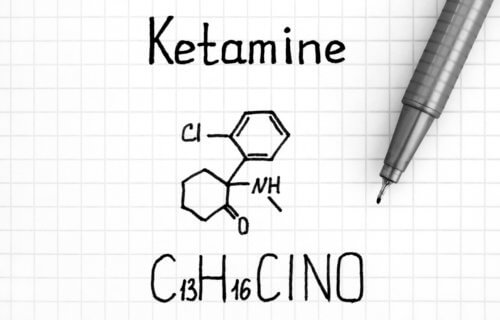OXFORD, England — People considering suicide could be saved by the illegal sedative ketamine, according to a recent study. Scientists say that the drug could stop people turning their dark thoughts into actions by relieving their psychological pain.
It’s estimated that 700,000 people around the world die from suicide each year, and 20 times more people attempt it, often with life-changing consequences. But resolving the thought process which goes through a person’s mind before they kill themselves, known as suicidal ideation, could prevent it.
Now, scientists report that ketamine, which is legally used as a powerful and fast-acting anesthetic, could help people battle suicidal thoughts. Particularly those who suffer from bipolar disorder could benefit from taking the drug, which is often illegally consumed to get high under the name “Special K.”
According to a press release by the BMJ: “These findings indicate that ketamine is rapid, safe, and effective in the short term for acute care in hospitalized suicidal patients. However ketamine is a drug with a potential for abuse and longer follow-up of larger samples will be necessary to examine benefits on suicidal behaviors and long term harm.”
A thorough clinical assessment was carried out of 156 patients who were voluntarily admitted to hospital in France with severe suicidal thoughts between April 2015 and March 2019. Before starting the trial, participants were divided into three groups: bipolar disorder, depressive disorder, or other psychiatric disorders.
Patients were then randomly selected to receive two 40 minute intravenous infusions of either ketamine or a placebo drug over 24 hours, on top of their usual treatment. Results show that 63 percent of patients given ketamine went into remission by day three, compared with 32 per cent in the placebo group.
All of their side effects were also rated as minor and had diminished by day four, the researchers note. One person died from suicide in the ketamine group, but this was unrelated, an oversight committee concluded.
The benefits of ketamine were most felt by patients with bipolar disorder, compared to those with major depression or other mental illnesses who did not see a difference. It also appears to relieve psychological pain, which could explain why it helps people combat suicidal thoughts.
The drug was, however, no longer effective after four and six weeks.
Researchers write that, “concerns over ketamine’s addictive nature and triggering another opioid style crisis mean it’s unlikely to become a treatment any time soon,” according to the release. “Whether the emergency use of ketamine for suicidal crises will be recommended in practice depends on many other factors, including the values and preferences of patients, clinicians, researchers, and policymakers.”
The findings are published in the BMJ.
Editor’s Note: A previous version of this story, provided to StudyFinds by South West News Service, incorrectly attributed quotes and information to Dr. Riccardo De Giorgi from the University of Oxford. The previous version also asserted Dr. De Giorgi was one of the study authors. StudyFinds regrets this error and has updated the article with corrections. Dr. De Giorgi was not associated with the study above, and wrote an editorial in The BMJ in response to the study it refers to.
South West News Service writer Tom Campbell contributed to this report.
